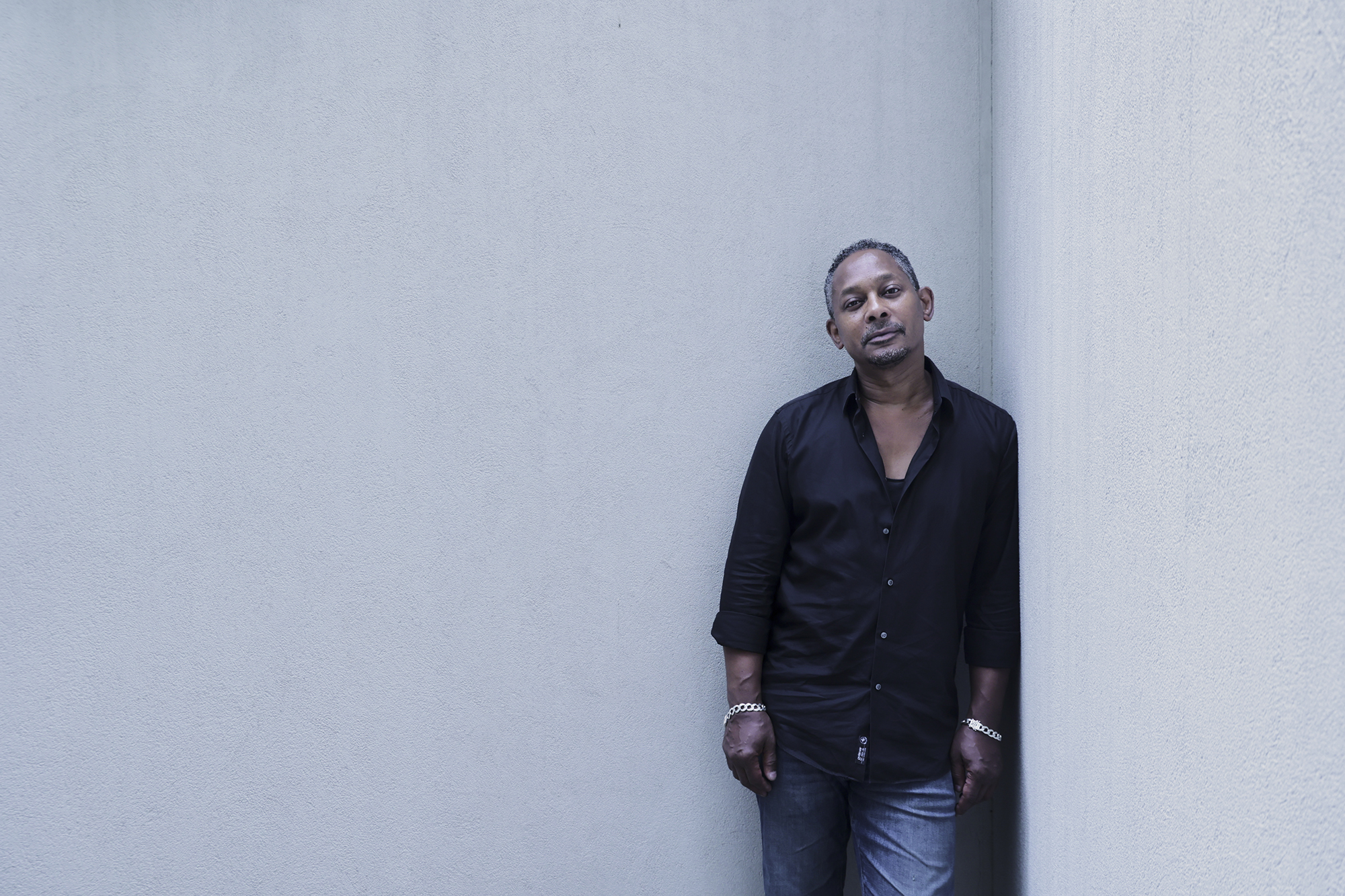
“I Don’t Want to be Personified.” 27 Years After the Soundtrack’s Release, We Talk with a Leader in Techno Music, Derrick May, About What Draws People to Ghost in the Shell
Text: Satoshi Asahara / Photo: Great The KabukichoDerrick May, the legendary DJ who brought the Detroit techno scene to the rest of the world, visits Japan for the first time in five years. As the headline act for the “DEEP DIVE in sync with GHOST IN THE SHELL” music event held on May 25 at Zepp Shinjuku, he put on a show that whipped fans into a frenzy. Derrick May contributed to the soundtrack for the “Ghost in the Shell” PlayStation game released in 1997. His cutting-edge music bridged the gap between fans of club music and fans of the original manga and anime. To learn more about his enthusiasm at the time and his thoughts on Ghost in the Shell, we sat down for an interview with him a few days before the event.
-Did you know about Ghost in the Shell before you contributed to the soundtrack for the video game?
Derrick May (“Derrick”): I did. I liked both the anime and the original manga, so I think you could consider me a fan. When the Ghost in the Shell movie was released in 1995, I think there were a lot of people who had difficulty understanding it at first, but it’s stood the test of time and is beloved to this day. I’m really impressed by the legacy this story has built up over the years.
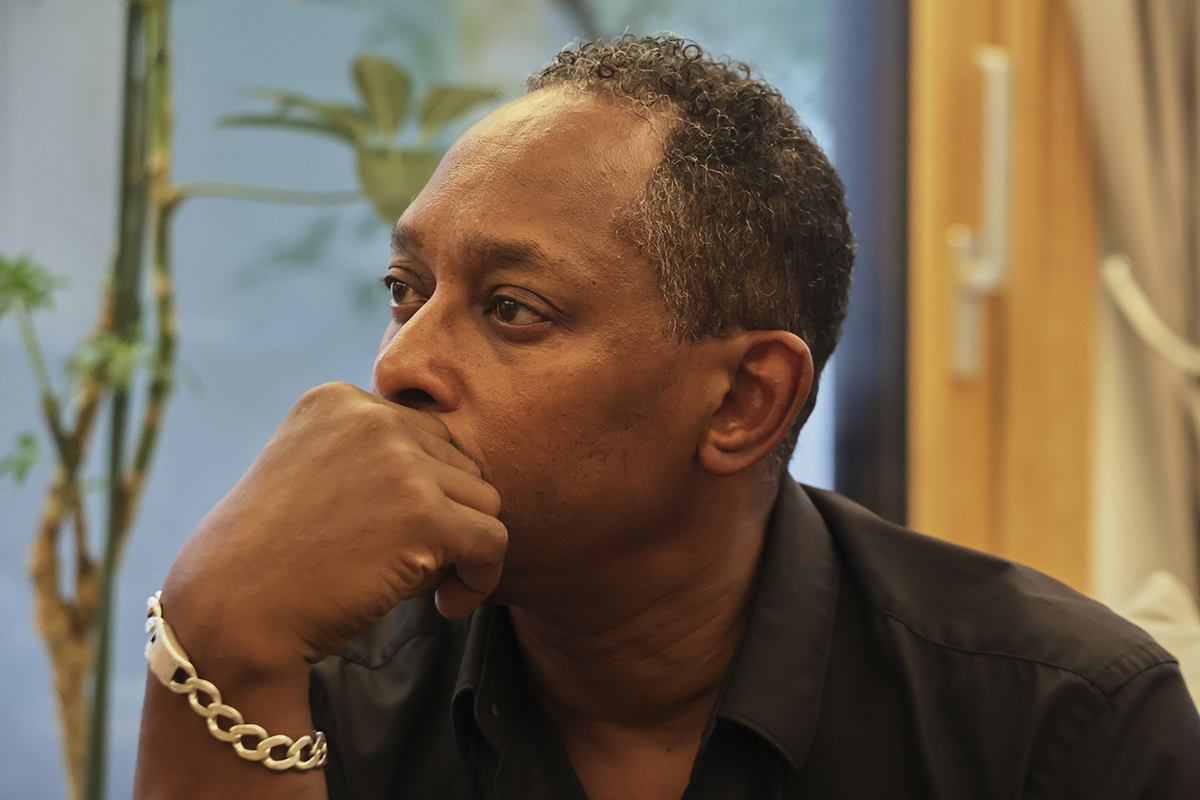
-During the 80s and 90s, there was a boom in stories that revolved around the fusion of humans and machines. Did you consume a lot of this sort of “cyberpunk”media back in the day?
Derrick: I liked “AKIRA” a lot, and now that you mention it, I remember I once ran into the director of that movie while I was drinking late one night in Harajuku. Another thing I liked even before “cyberpunk” was Alvin Toffler’s book “The Third Wave.” It was published in 1980 and talked about the information society. I thought that was interesting. The information revolution depicted in Ghost in the Shell is exciting, and the concept of ghosts really gets your imagination going, if you ask me.
-Do you have a favorite Ghost in the Shell character?
Derrick: I like Togusa, because he’s just a regular guy with no prosthetics. There’s no way he can compare to the other characters, who all have their physical and mental abilities boosted with prosthetics, but he’s still doing his best to find out what he can do regardless. I like underdogs like that, who take on challenges they have no chance of winning. His companions in Section 9 all like and respect Togusa, too.
-Since you were already a fan of Ghost in the Shell, when you were asked to make music for the game, did you consider it a challenge?
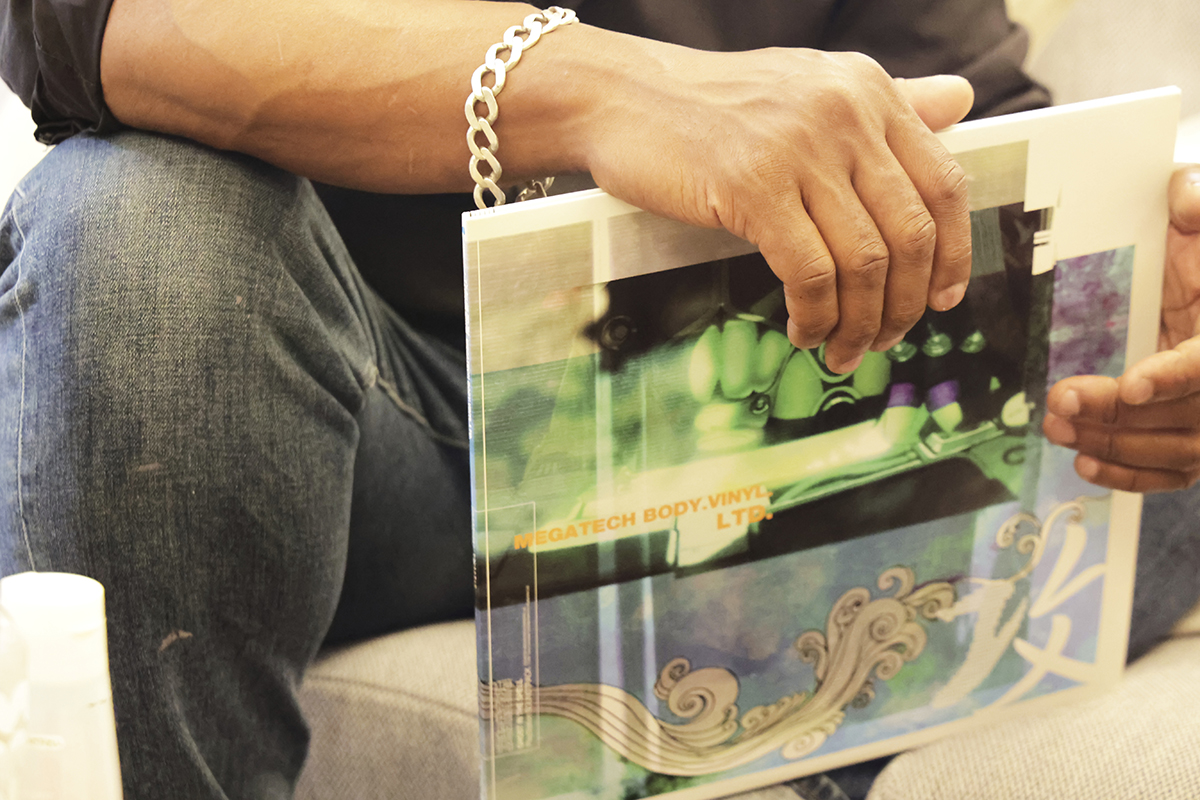
Derrick: Most of my communication was with Hiro (Masakazu Hiroishi from Sony at the time of 1997, currently runs UMAA, Inc.) , you know, and I wasn’t really involved with anyone else on the project. I was given the opportunity to have two versions of “To Be or Not To Be” involved with the album. No one discussed anything with me really and I took that as a compliment and as a total confidence in my ability.
-Is there anything you changed in your approach to creating “To Be or Not to Be” compared to your previous dance music tracks?
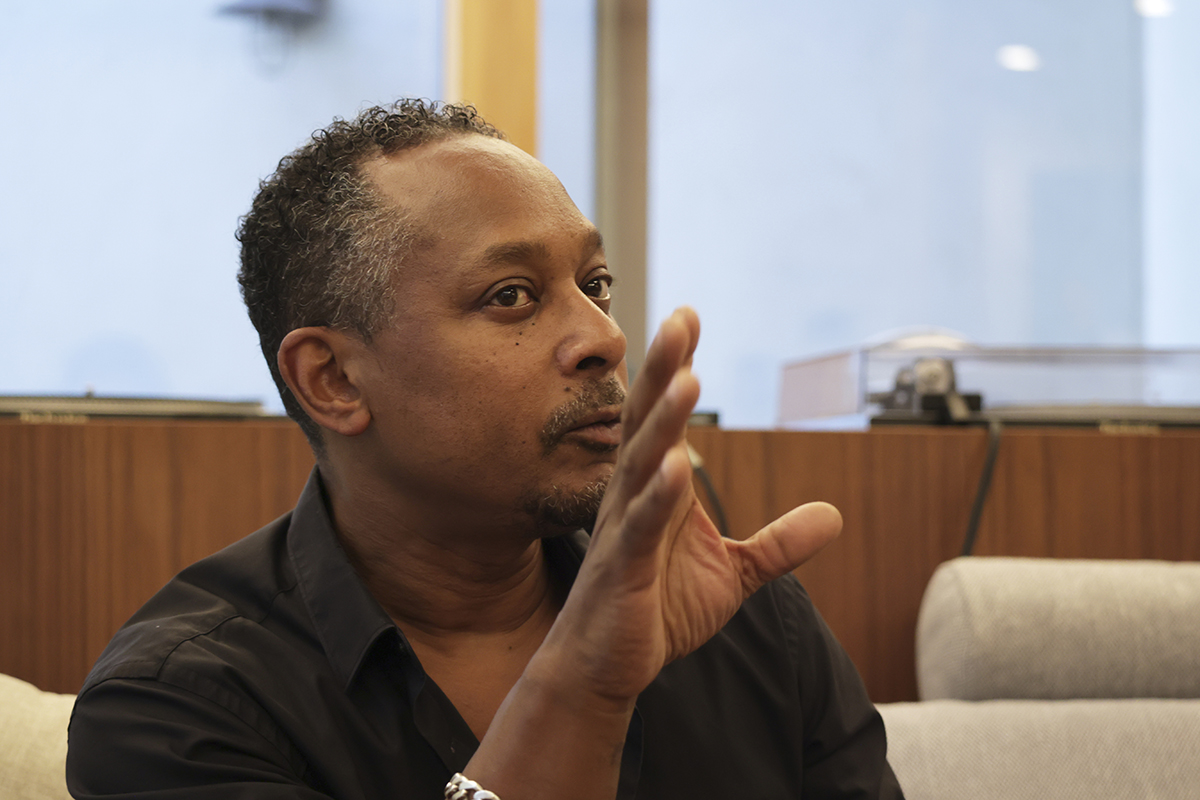
Derrick: Let me see… My goal going into it was to experiment with frequencies that could be tolerated by the listeners. Since I used a lot of phasing (a technique that replicates waves by adjusting the ‘phase’ of the sound), it caused a lot of problems for the record company since it couldn’t be replicated exactly as intended on the soundtrack. It was difficult to get the exact sound I had in mind with the software of the time. That’s why, as I see it, “To Be or Not to Be”was released with what might as well have been monaural mastering. It’s been 27 years since its initial release, and I hope the track will be remastered with the new technology that is available today to get the real sound, because nobody knows what it really sounds like.Maybe one day we get a new master of “To Be or Not to Be,” and you can really hear it.
-You’ll be performing in the “DEEP DIVE in sync with GHOST IN THE SHELL” music event. What’s been on your mind as you prepare for this performance?
Derrick: All I want is to put on the best show for the audience that I can. I’ve been preparing myself both mentally and musically for this event. I’m just so very happy to be able to play in Japan again. I’ve already had shows in Fukuoka and Hokkaido. Both parties were fantastic.I think the dance music scene in Japan has changed a lot following Covid. Compared to ten, or even just five years ago, how has it changed and where does it stand? I’m very curious to deepen my understanding and find the answers to these questions while I’m here.
-Ghost in the Shell is a story that depicts the relationship between humans and machines, and the newest series, “Ghost in the Shell sac_2045” will be released in full 3DCG. Visually, the franchise is keeping up with the newest technology. In the music industry, there’s been a lot of attention on AI and the Metaverse. Are you, personally, interested in incorporating these new technologies in your music going forward?
Derrick: You know how we can look at this question? Let’s imagine. When people like me and Juan Atkins (another Detroit techno creator) or people involved in Chicago house music arrived on the scene, how do you think that made musicians and bands focused on acoustic instruments feel? I’m pretty sure they didn’t like us immediately. *laughs* Personally, I’m excited when new technology comes out. It’s going to be a part of the future anyway, so I think we should accept that fact. But, and I don’t just mean music here, I don’t want the younger generations to just throw stuff at machines and expect to get something made for them. That’s what concerns me. For people of our generation, it’s up to us to share with them how wonderful it is to be an actual human creator. And I hope that these new technologies don’t end up being used to hurt or con people.
-Do you have any interest in replacing your body with prosthetics, keeping only your original brain? If that were possible, you could use technology that surpasses what humans are capable of to DJ and make music forever.
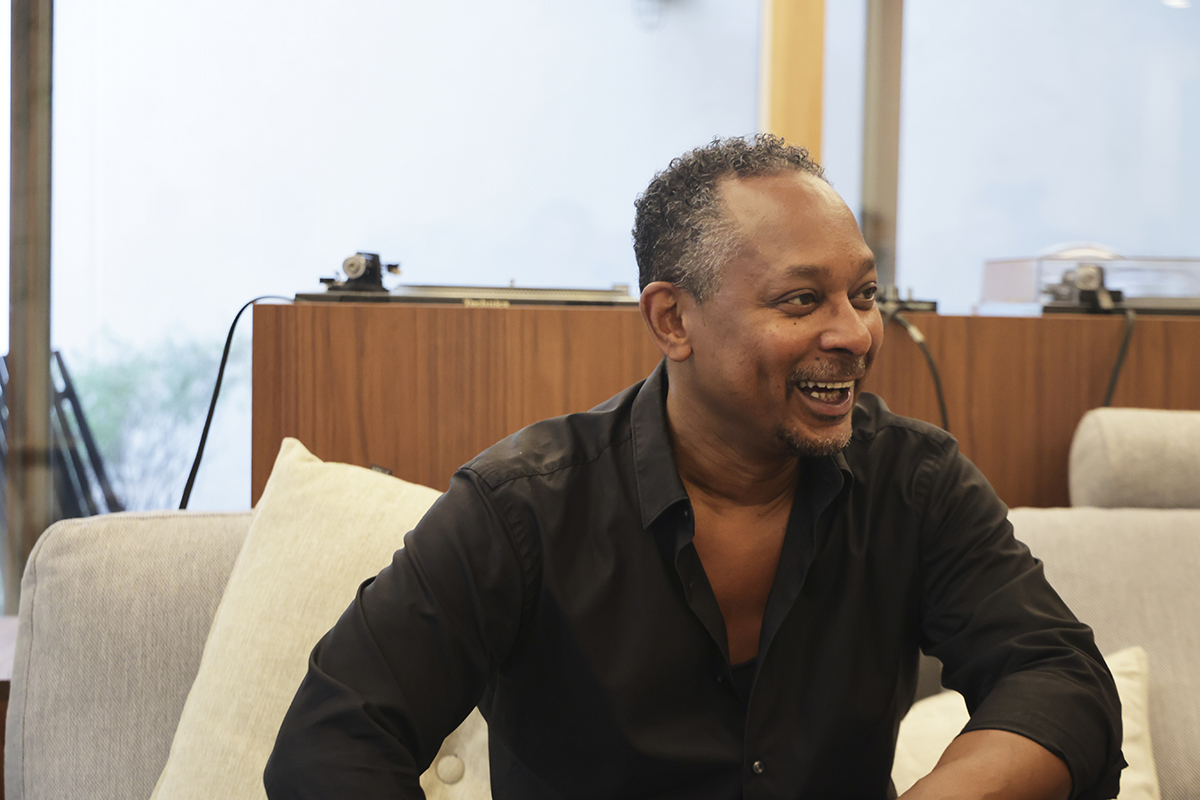
Derrick: No, I don’t think I’d want that. I think it’s the imperfections of humanity that drive us to do our very best. That’s why I like being human. Think about it. Twenty years in the future, I bet people will think that driving your own car yourself is silly and behind the times. We might not be able to enjoy our own limitations as humans anymore. Honestly, I get the feeling that the future is getting closer every day. On social media, you keep hearing about how great self-driving cars are, and you see more efforts like this to control how the younger generation thinks. And any effort to deviate from that makes you the bad guy. Technology may end up changing the world from the inside… The metaphor of a “puppeteer” used for the social structure seen in Ghost in the Shell has, in a way, become embodied in our real-world social media. I don’t know what’s going to happen in the future. But even so, I think it’s important to stick to your own individuality as much as you can and set yourself apart from the crowd as a separate human.
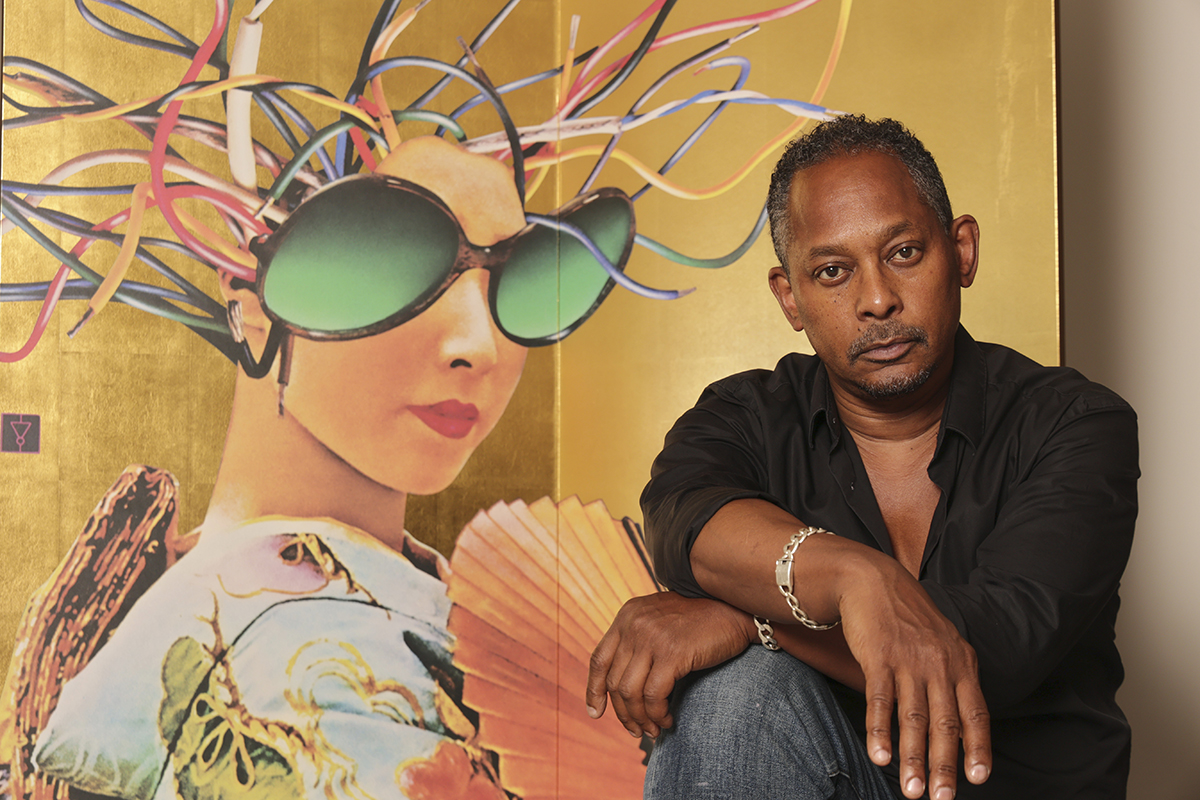
Derrick May
Born April 6, 1963. He founded his label, TRANSMAT, in 1986, and has released many masterpieces such as “Nude Photo,” “The Beginning,” “Icon,” “Beyond the Dance,” “Strings of Life” and more. The originator of Detroit Techno—he’s an influential member of the global dance music scene.
[News] “MEGATECH BODY CD., LTD., ”a 2-CD game soundtrack for “Ghost in the Shell” released in 1997 as an action/shooting game on PlayStation®, will be re-released. For more information here.

